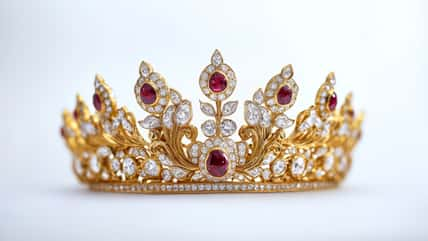She Was A Brave Warrior And Ruled The Celtic Iceni Tribe, Gathering A Rebel Army Of Over 100,000 People To Take Revenge On The Romans After They Stormed Her Late Husband’s Land

Powerful, fierce women have been around for centuries, but their stories often get overshadowed by prominent men from their time periods.
For instance, do you know who Queen Boudica, the Iceni tribe ruler and brave warrior, was?
Researchers believe Boudica was born around 25-30 CE, but much of her life before the Roman conquest is unknown.
She was born into a noble family in England and eventually married Prasutagus, king of the Celtic Iceni tribe.
After marrying him, she became the tribe’s queen, and they ruled side-by-side. They also had two daughters together.
When Prasutagus died around 60 CE, he divided his kingdom in half, giving one to the Roman Emperor Nero and the other to his daughters.
However, the Romans were not pleased with this plan and stormed Prasutagus’ land, wanting to take it for themselves.
During the Romans’ plight, they seized property and items from the Iceni and made a mockery of Boudica by publicly flogging her and taking advantage of her daughters.
Furious by the actions of the Romans, Boudica swore to take revenge and began plotting what is known as Boudica’s Revolt.

acceleratorhams – stock.adobe.com – illustrative purposes only
She began gathering a rebel army and found others who had also fallen victim to the Romans, like the Trinovantes and other tribes.
Boudica’s army, consisting of over 100,000 people, began by successfully capturing the Roman settlement of Camulodunum and then impressively destroyed Londinium, where London is currently located.
Boudica’s army proudly marched on, destroying lots of Roman property and lives in her angered wake.
However, due to the tactical military work of Roman general Gaius Suetonius Paulinus and his army, which had much more military experience than Boudica’s army, she was defeated at the Battle of Watling Street.
Although Boudica was not killed in battle, some researchers believe she died from taking poison to avoid being captured by the Romans. Others have said she died from illness.
Even though Boudica was defeated, her bravery and courage as a woman at that time to form an army and lead a revolution was astonishing. It’s one of the main reasons why she is considered a symbol of women’s bravery, justice, and freedom.
Sign up for Chip Chick’s newsletter and get stories like this delivered to your inbox.
More About:Chicks We Love





